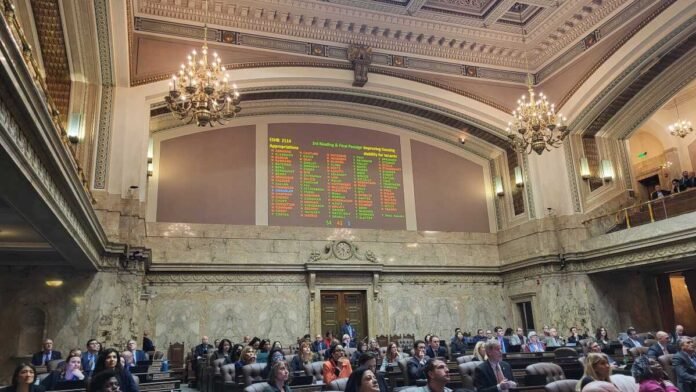A rent stabilization bill moving through Washington’s Legislature is facing new uncertainty after recent changes in the state Senate altered key provisions. House Bill 1217, which aims to limit rent increases and add new tenant protections, now returns to the House for consideration of Senate-approved amendments.
If the House does not accept the Senate’s version, the bill will move to a conference committee, with less than two weeks remaining in the legislative session.
Among the amendments made in the Senate: the rent cap was raised from 7% to 10% plus inflation, and single-family homes were exempted from the cap. Supporters of the bill argue that these changes could weaken its intended impact in a state where approximately 40% of residents rent. Critics of rent control measures, however, caution that such policies may discourage housing development and fail to address housing shortages.
The bill would impose several measures, including limiting rent and fee increases within the first 12 months of tenancy, and extending the notice period for rent hikes from 60 to 90 days. It also retains a 5% cap on rent increases for manufactured homes. If enacted, the law would take effect immediately and remain in place until July 1, 2045.
The legislation is modeled after similar efforts in other states, including Oregon and California, which have passed rent control laws in recent years. Proponents say such policies can help reduce housing instability and displacement, while critics argue they have not significantly curbed homelessness and may create unintended economic impacts.
For some renters, the proposed protections are personal. Duana Ricks-Johnson, a disabled veteran and single parent, has relocated her family multiple times in recent years due to rising rents. Living on a fixed income, she expressed concern about the consequences of the bill failing to pass.
Another renter, Dominique Horn, who lives in Camas, said her family spends half of their income on rent. She voiced concern that exempting single-family homes from the cap could leave many renters unprotected. “Being able to plan for future rent increases is key to maintaining stability in every area of life,” she said.
On the other side, some property owners say predictability in rent increases benefits both landlords and tenants. One small-scale landlord in Kitsap County noted that while rental markets remain largely unregulated, some level of oversight could help promote fairness and housing security.
Lawmakers from both chambers will now decide whether to accept the Senate’s version or negotiate a final draft before the session ends.
For more political updates, visit DC Brief.


